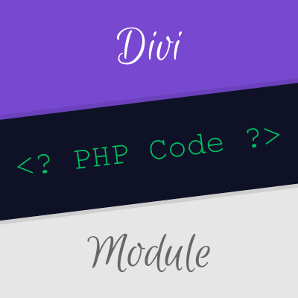Here is a powerful way to customize your Divi Blog Module using PHP code and filters. By adding the code given below, new filters will be added to the Divi Blog Module, which allow you to modify and extend the functionality of the Blog Module.
First, I'll give the code to add the filters, and then details of the filters it adds
Registering the Divi Blog Module filters using PHP
This PHP code below adds several filters to the Divi Blog Module:
- dbc_blog_module_article – for filtering the HTML of individual articles in the blog listing
- dbc_blog_module_post_meta_items – for filtering the post meta data items
To make these filters available, add this PHP code to your site:
// Add the "dbc_blog_module_article" filter
add_filter('et_pb_blog_shortcode_output', array(new DBC_Blog_Module_Filters, 'add_article_filters'), 10, 3);
class DBC_Blog_Module_Filters {
private $props;
public function add_article_filters($content, $render_slug, $module) {
if (is_string($content)) {
$this->props = (is_object($module) && isset($module->props))?$module->props:array();
return preg_replace_callback('/<article id="post-(\d+)".*?<\/article>/s', array($this, 'apply_article_filters'), $content);
}
return $content;
}
public function apply_article_filters($match) {
if (isset($match[0]) && isset($match[1])) {
return apply_filters('dbc_blog_module_article', $match[0], $this->props, $match[1]);
}
return $match;
}
}
// Add the "dbc_blog_module_post_meta_items" filter
add_filter('dbc_blog_module_article', 'dbc_register_blog_module_post_meta_items_filter', 10, 3);
function dbc_register_blog_module_post_meta_items_filter($html, $props, $id) {
if (preg_match('/<p class="post-meta">(.*?)<\/p>/s', $html, $matches)) {
$meta_items = explode(" | ", $matches[1]);
} else {
$meta_items = array();
}
$meta_items = apply_filters('dbc_blog_module_post_meta_items', $meta_items, $props, $id);
if (!empty($meta_items) && strpos($html, '<p class="post-meta">') === false) {
$html = str_replace('<div class="post-content">', '<p class="post-meta"></p><div class="post-content">', $html);
}
$html = preg_replace('/<p class="post-meta">.*?<\/p>/s', '<p class="post-meta">'.implode(' | ', $meta_items).'</p>', $html);
return $html;
}Related Post: Adding PHP to the Divi Theme
Note that adding this code doesn't itself change the behavior of the site. It simply makes the new filters available for use by additional PHP code.
Filter: "dbc_blog_module_article"
This filter lets you add to or modify the HTML for individual articles listed in the blog module.
For instance, you could use it to add an author box or related posts after each article within the blog module, e.g.:
function add_author_box($article_html, $module_props, $post_id) {
$author_box = '<div class="author-box">... your author box HTML code ...</div>';
$article_html .= $author_box; // append author box to the content
return $article_html;
}
add_filter('dbc_blog_module_article', 'add_author_box', 10, 3);Filter: "dbc_blog_module_post_meta_items"
This filter is helpful when you want to add or modify the post metadata, such as number of comments, post date, etc. It converts the existing meta data items into an array, which can then be manipulated via the filter.
Example:
function add_reading_time($meta_items, $module_props, $post_id) {
$content = get_post_field( 'post_content', $post_id );
// Calculating reading time based on average reading speed.
$reading_time = ceil(str_word_count($content) / 200);
$meta_items[] = $reading_time . ' min read';
return $meta_items;
}
add_filter('dbc_blog_module_post_meta_items', 'add_reading_time', 10, 3);


0 Comments